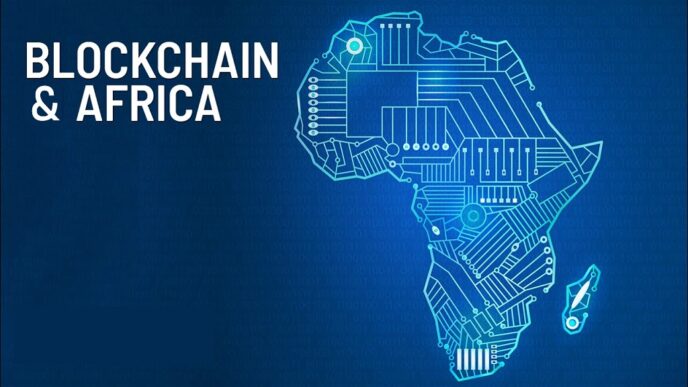Introduction
In an era marked by global challenges and a heightened sense of social responsibility, the transformative power of Web3 and blockchain technology is making waves in philanthropy and humanitarian efforts. As the next evolution of the internet, Web3 introduces a decentralized and interconnected framework that empowers individuals to make a meaningful impact on society. This article delves into how Web3 is reshaping charitable giving, enhancing transparency, and tackling the ethical dilemmas that accompany these advancements.
How Web3 is Revolutionizing Philanthropy and Humanitarian Aid
Web3 is redefining the landscape of charitable engagement, enabling donors to connect directly with those in need while bypassing traditional intermediaries. This shift not only fosters greater personal connection but also facilitates a more efficient and transparent donation process.
According to a report by the United Nations Development Programme, blockchain can “increase transparency and accountability, thereby reducing corruption while enabling swift disbursement of funds” in humanitarian contexts. The potential to eradicate corruption in philanthropy is immense, and current adoption rates are only scratching the surface of this technology’s capabilities. A survey by Fidelity Charitable revealed that 75% of millennials and Gen Z donors are keen on donating cryptocurrency to charitable causes, highlighting a generational shift toward digital philanthropy.
The Benefits of Web3 for Charitable Giving
The integration of Web3 in humanitarian aid offers several compelling advantages:
- Enhanced Transparency: Donors gain access to an immutable ledger that provides real-time tracking of their contributions.
- Elimination of Middlemen: Direct donations reduce delays and costs, ensuring that funds reach their intended destinations quickly.
- Fraud and Corruption Reduction: The decentralized nature of blockchain minimizes risks associated with traditional aid distribution.
- Smart Contracts: These automated agreements ensure funds are utilized as intended, creating a robust safeguard against misuse.
- Empowered Donors: Individuals can monitor their impact firsthand, fostering a deeper connection with the causes they support.
The hallmark of Web3 lies in its capacity for transparency, allowing donors to witness the direct effects of their contributions in real-time.
Creating Transparency and Accountability with Blockchain
Blockchain technology fundamentally alters how philanthropy operates by offering complete transparency. Each transaction is permanently recorded on an immutable ledger, instilling confidence in donors that their contributions are effecting genuine change.
The elimination of intermediaries and the introduction of smart contracts serve to bolster accountability, ensuring that donations are channeled appropriately and without the risk of diversion.
Ensuring Donations Reach Their Intended Recipients
A persistent challenge in traditional philanthropy is ensuring that aid reaches those who need it most. Web3 addresses this issue head-on, allowing for direct tracking of donations to verify their ultimate destination. This level of transparency effectively mitigates the risks of fraud and corruption that often plague traditional systems.
The Role of Smart Contracts in Charitable Giving
Smart contracts represent a groundbreaking innovation in the philanthropic sphere. These self-executing agreements enable donors to establish specific conditions for their contributions, automatically triggering actions when predefined criteria are met. This ensures that donations are utilized as intended, preventing misappropriation and enhancing trust in the system.
Challenges of Implementing Web3 for Social Impact
Despite its transformative potential, the adoption of Web3 for social impact is not without hurdles. The complexity of the technology can deter participation, and the lack of regulatory oversight raises concerns about scams and fraudulent activities. Moreover, there is a risk that access to Web3 could be limited to those with the necessary technical expertise and financial resources, exacerbating existing inequalities.
Ethical Considerations in Web3 Philanthropy and Humanitarian Aid
The application of Web3 raises important ethical questions. The inherent transparency of blockchain technology poses privacy risks for recipients, as personal data could be exposed. Additionally, the disruption of traditional aid systems may have unintended consequences, further entrenching existing disparities rather than alleviating them.
Exemplifying Social Impact: Successful Use Cases of Web3 and Blockchain
Several organizations have harnessed the power of Web3 and blockchain to drive meaningful social impact. For instance, the United Nations World Food Programme implemented blockchain technology to deliver aid to Syrian refugees in Jordan, providing them with digital vouchers redeemable for food and essentials at local vendors.
Another noteworthy example is the Blockchain Charity Foundation, established by Binance, which focuses on ensuring transparent and accountable charitable contributions. In partnership with the Ugandan government, the foundation launched a project aimed at improving educational access and reducing poverty through blockchain-enabled donations.
In Summary:
Web3 and blockchain technology stand at the forefront of a new era in philanthropy and humanitarian aid, offering unprecedented opportunities for transparency, accountability, and efficiency. As noted by the CEO of the United Nations World Food Programme, “Blockchain technology has the potential to be a game-changer in humanitarian aid, enabling us to reach more people faster, cheaper, and more efficiently.”
While the challenges and ethical considerations surrounding Web3 adoption must be addressed, the potential for transformative social impact is undeniable. As technology evolves, ensuring that Web3 remains accessible to all will be vital for fostering a more equitable and just world.
About the Author
Ian Scarffe is a serial entrepreneur, investor, and blockchain consultant with extensive experience across global markets. An expert in startups, investment, fintech, Web3, AI, and blockchain, Ian advises multi-million dollar companies and is dedicated to empowering economically independent individuals to contribute positively to their communities.















